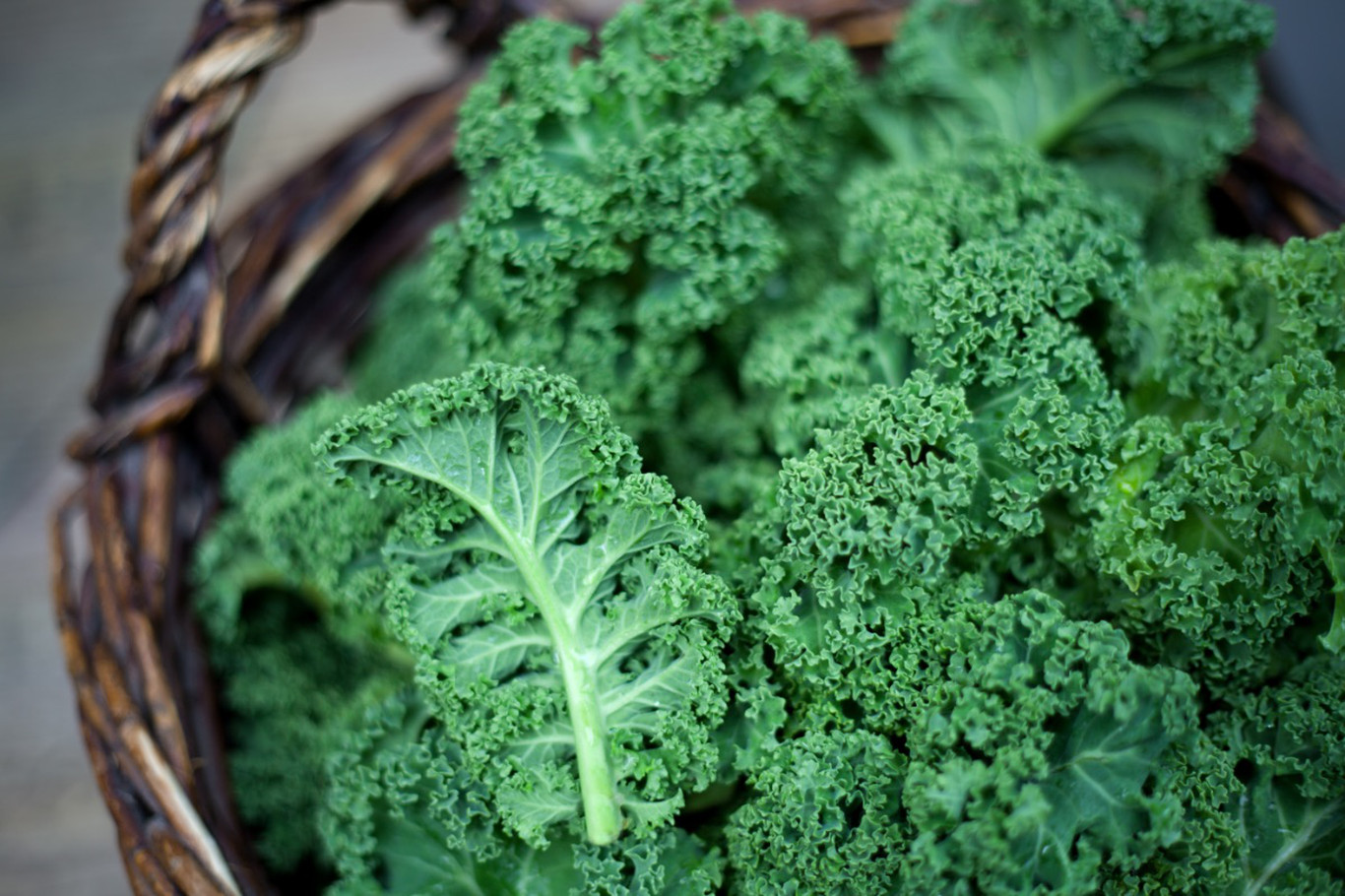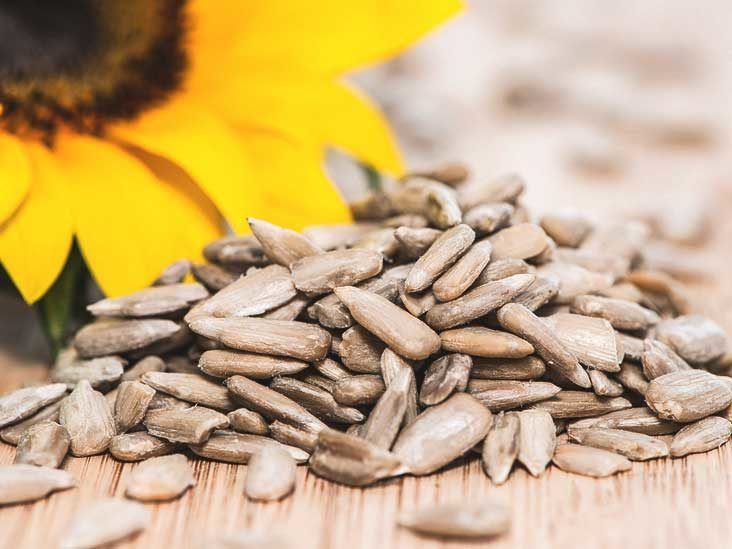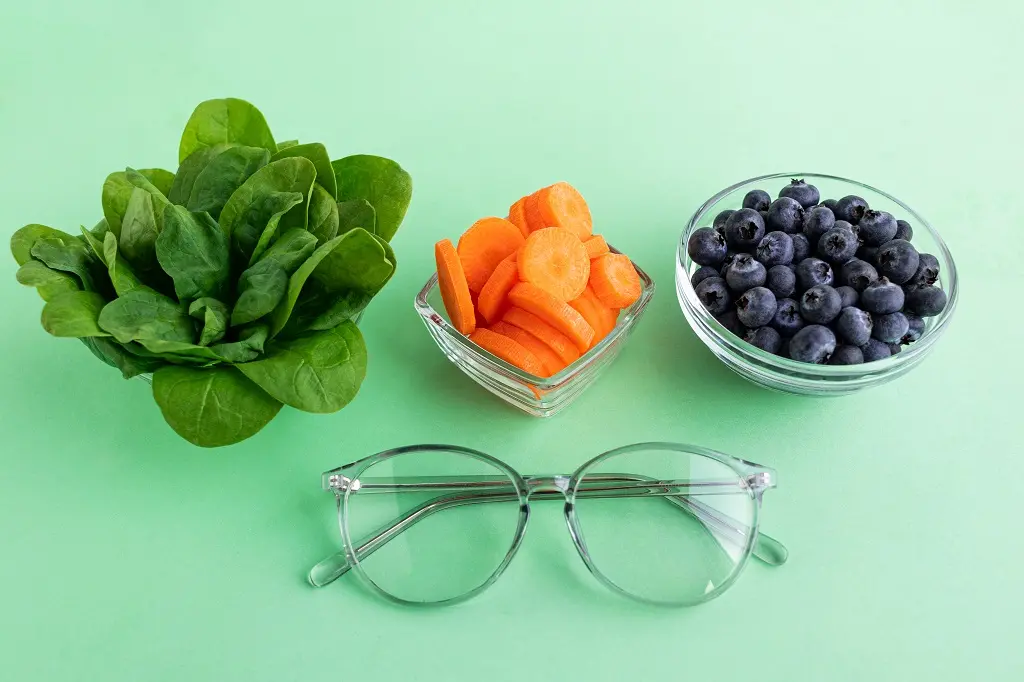It is a gift to be able to observe the world unencumbered. The eyes are possibly the most crucial sense organs for experiencing the environment. Therefore, it is vital to eat particular nutrients to improve eyesight naturally. Eyesight is typically damaged by inheritance, age, and gadget use, but the nutrients you consume help prevent photodamage. In addition, they maintain your retinas and corneas healthy. We have created a list of food products that you must include in your diet to safeguard your eyesight in this post. Check them out below!
Foods To Maintain And Protect Your Eyesight
1. Carrots
Carrots are lovely and nutritious vegetables. They are incredibly flexible and lend a wonderful color to any dish. They are filled with beta-carotene, an antioxidant and a precursor of vitamin A. Scientists have determined that consuming carrots enhances night vision in adults and helps prevent degradation of eyesight. Carrots also help prevent oxidative damage and inflammation - the two major causes of visual issues.
You may discover various recipes for carrot soup on the internet. Add them to curries or match them up with other veggies. Raw carrots offer optimal nutrients as heating them significantly deteriorates their nutritional composition. Munch on a carrot whenever you experience a want to munch. Or add it to your salads. But remember to drink lots of water. Also, do not overdo carrots as vitamin A can be hazardous in high levels.
2. Fatty Fish
Fatty fish are rich suppliers of omega-3-fatty acids. And omega-3s help reduce inflammation by balancing out the omega-3 and omega-6 fatty acid ratio. When the inflammation levels are low, your body and brain functioning increase, consequently improving your immunity. Plus, the area around the retina is filled with DHA, a form of omega-3 fatty acid. Therefore, consuming fish like salmon, tuna, and mackerel is helpful for your eye health.
If you are not a fish eater, you can take fish oil supplements after consulting to your doctor. The best method to consume fatty fish is to grill it. Frying or poaching may lower its food value.
3. Spinach

Spinach is rich in vitamins E, A, B, and C, minerals like iron and zinc, and phytonutrients like lutein and zeaxanthin. The carotenoids, lutein and zeaxanthin, have antioxidant and anti-inflammatory activities. Hence, ingesting a significant amount of spinach everyday can help avoid macular degeneration and cataracts. Since it includes zinc, spinach can also maintain the corneas healthy.
Add a bunch of lush green spinach to your smoothies. You may add fruits to your spinach smoothie to counteract any grassy or harsh taste. Spinach daal or soup tastes amazing too! Add baby spinach to sandwiches or a creamy pasta dish to lend a little snap to your food.
4. Eggs
Eggs are filled with critical amino acids and both water-soluble and fat-soluble vitamins. The egg yolk, however a little rich in cholesterol, is a good source of lutein and zeaxanthin, which contribute the yellow color to it.
Consume one or two whole eggs to keep your eyes healthy. Boiled, poached, or soft-boiled eggs are ideal and can be added to other cuisines to enhance their taste.
5. Dairy
Milk and yogurt are fantastic for enhancing eye health. Apart from calcium and phosphorus, they are filled with zinc and vitamin A. Vitamin A helps protect the cornea, while zinc helps deliver vitamin A to the eyes from the liver. Zinc also helps with night vision and prevents cataract.
You can drink grass-fed milk in the morning or at night before going to bed. Have yogurt after lunch or as a snack.
6. Nuts
Nuts are an excellent source of healthy fats and vitamin E, which helps reduce inflammation. Research has also proven that ingesting nuts high in vitamin E can help prevent age-related cataract development.
You must have a handful of mixed nuts every day to help improve and safeguard your vision. However, be careful with these mini bundles of joy as you can easily go overboard with them.
7. Kale

Like spinach, kale is likewise filled with vitamins, minerals, dietary fiber, and lutein. Lutein helps reduce light and oxidative damages and protects the eyes from age-related macular degeneration and cataract.
About 100 g of kale will offer you with 11 mg of lutein. You can have kale in salads, soups, smoothies, wraps, and sandwiches.
8. Whole Grains
Whole grains are an excellent source of dietary fiber, phytonutrients, vitamins, and minerals. Zinc and vitamin E are the two key eye health-promoting elements included in them. These help protect the eyes from oxidative damage and inflammation.
Consume quinoa, whole lentils, oats, and brown rice to promote eye health.
9. Oysters
Oysters are rich in zinc that helps promote eye health. Moreover, fish and shellfish contain substantial quantities of omega-3 fatty acids that help protect against progressive age-related macular degeneration. You may consume oysters from a recognized restaurant.
10. Red Bell Pepper
Red bell pepper is a good source of vitamins A, E, and C plus zeaxanthin and lutein. These vitamins and phytonutrients are known to protect the eyes from macular degeneration and help maintain excellent retina function by reducing oxidative damage.
Consume raw, blanched, or sautéed red bell peppers.
11. Broccoli
Broccoli is one vegetable that has several health benefits. The vitamins A, E, C, and lutein found in broccoli makes it a good diet for your eyes. It helps safeguard your optical health by avoiding photodamage and oxidative damage.
Consume roasted or blanched broccoli.
12. Sunflower Seeds

Sunflower seeds are highly helpful for your overall health. These are rich with vitamin E, protein, and healthy fats. These nutrients help decrease inflammation and eliminate metabolic wastes from the eyes.
Toss a few sunflower seeds in your breakfast dish, salads, or smoothies.
13. Citrus Fruits
The eyes have a high metabolic rate and continually need antioxidants to wash out poisons created as a result of metabolic processes. Citrus fruits like oranges, berries, and kiwis are filled with vitamin C — a fantastic immunity booster. It is an antioxidant that helps scavenge the damaging oxygen radicals, thereby protecting your eye muscles from damage. Vitamin C also helps boost the health of the blood vessels found in the eyes.
14. Beans And Legumes
Beans and legumes are significant sources of zinc and bioflavonoidsi . These assist protect the retina and prevent the chance of acquiring a cataract.
Consume a proper number of lentils, kidney beans, chickpeas, green peas, and sprouts to boost your eye health.
15. Sweet Potato/Purple Sweet Potato
Sweet potato and purple sweet potato help improve vision. As discussed above, the yellow hue in meals is conferred by zeaxanthin and lutein. Sweet potatoes include these antioxidants that help reduce inflammation and wash out pollutants.
You can have roasted or boiled sweet potato to gain all its benefits. You may also read this: Ten Foods Loaded With Saturated Fats
How To Take Care Of Your Eyes To Prevent Eyesight Problems

meals make taking care of your eyes easier, but you must do a few things to assist these meals do their work properly. Here are a few eye care suggestions and things you need to take to prevent vision impairment.
Eye Exercises
You must exercise your eyes to strengthen the muscles. Focus unfocus, palming, rolling your eyes, etc. are a few examples of eye workouts. Check this post out to know more.
Splash Water
All of us are tied to our laptops, iPads, or cell phones. The radiation from these devices is exceedingly dangerous, and no matter how many layers of protective coverings we add to the glasses, the eyes always get harmed. Cool your eyes by splashing water on them every one or two hours.
Close Your Eyes
A tight deadline might transform you into a night owl. Unfortunately, the eyes of owls are constructed differently. Give your eyes 2-3 minutes rest just by closing them. Do it every 30 minutes, and you will see a difference.
Adjust The Lighting
Adjust the illumination on your computer, cell phone, and iPad - it will assist protect your eyesight by preventing photodamage.
Wear Sunglasses
You must shield your eyesight from intense sunshine. If you are walking out and it is quite sunny outdoors, use sunglasses. They will prevent photodamagei and UV damage.
Get The Right Spectacles
Go to a qualified eye doctor for a checkup. Make sure you answer his/her questions correctly to help him/her prescribe the correct glasses for you.
Now that you know how to safeguard your eyesight, it is still vital to learn about the different forms of eyesight problems to raise your awareness. Take a peek.







